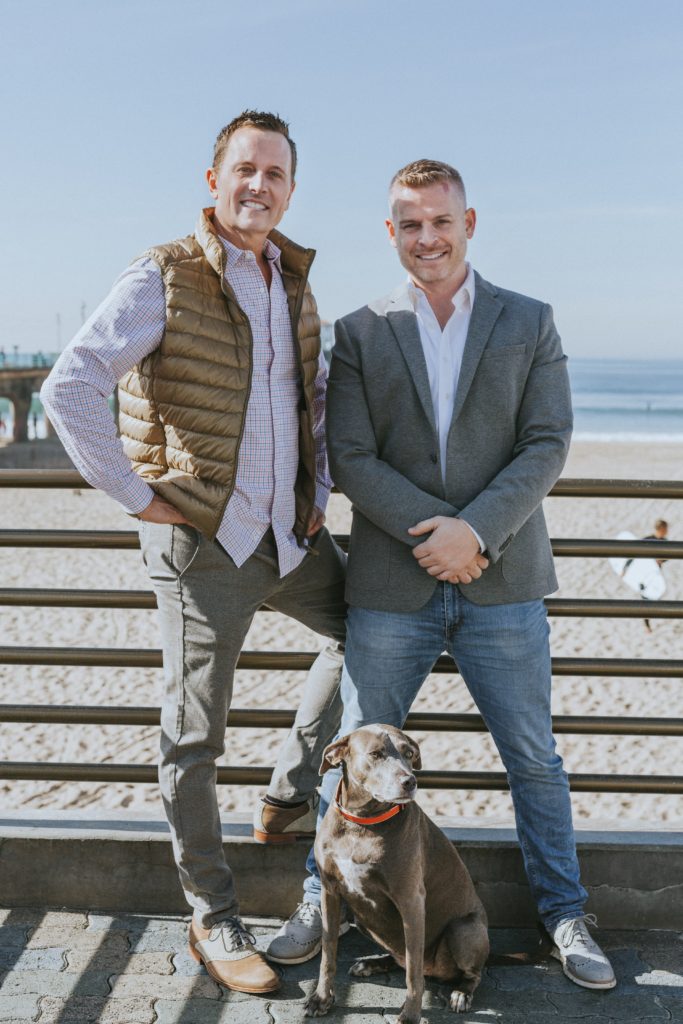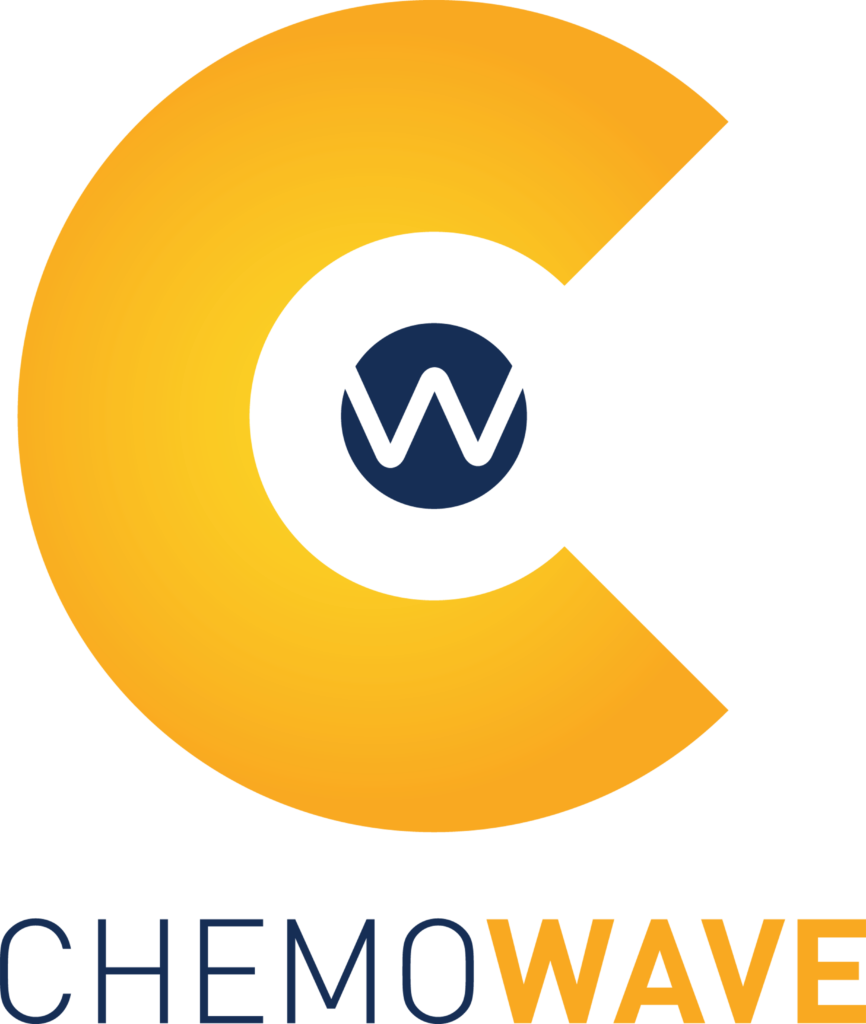Riding the Cancer Wave
by Matt Lashey – health tech entrepreneur / previous cancer caregiver

Richard Grenell (left) and Matt Lashey (right) with their dog Lola.
He wasn’t sick. He was running five miles a day. Felt great. Looked good, but we noticed a small lump on his neck. We weren’t worried, and after a routine scan, the doctor said, “It was nothing.” Later, another doctor double-checked. It WAS something. Cancer. In 2013 my partner Ric was diagnosed with non-Hodgkin’s lymphoma. It felt like a bad dream – disorienting, overwhelming, scary. Cancer came crashing into our lives and we didn’t know how to stay afloat.
We were ready to fight through it, to stay alive, but other thoughts creep in… Will I lose my hair? Will I be able to work? What are my options? Ric’s job included being interviewed on TV…could he still do that? He could, but during treatment, before he publically shared his diagnosis, the viewer comments about his appearance were not always nice. And, in the middle of treatment, with his drivers license expiring, he was forced to get a new photo – with no eyebrows, no hair and sallow skin.
But I’m jumping ahead. After first being diagnosed, we tried to educate ourselves – diving into a sea of information about treatments, medications, side effects, and tips upon tips for managing it all. Well-meaning people shared contradictory experiences. We downloaded many disappointing apps. And as we trudged through rounds of chemo, we also realized that while doctors apply their tremendous expertise during treatment, the very nature of cancer protocols, particularly side-effect management, is inevitably trial and error because everyone is different. Consequently, throughout treatment, doctors ask questions and patients do their best to remember how they felt. And when they felt it? And did it change the next day? Or was it the next? It is hard to remember the specifics of a skin rash or point to the exact moment of discomfort. One day up, the next day down – randomly it seemed.
Then something clicked for me. My career was in collecting and analyzing data. I’m a “numbers guy.” So I decided to create my own system to gather more personalized data – about Ric’s diet, hydration, exercise, social interaction, mental engagement – all by hand and anything that might make a difference to Ric’s therapy. Ric would tell you he found my daily surveys initially annoying (“What was the point?” he complained.) I wasn’t sure. Then we noticed something the doctor hadn’t yet noticed. Ric was having an unexpected side effect. We came armed to our next appointment with my chart of patterns and notebook of analytics. Ric was taking an anti-nausea drug and debilitating constipation was not a common side effect. But because of what we were tracking I was able to pinpoint that very effect. As a result, the doctor switched Ric’s medication, and almost immediately his symptom was relieved. Our tracking made a difference. And we realized we had options! We now had an advantage in this fight. We knew with greater accuracy what Ric experienced and when. We now had individualized information. And our doctor began to have actionable and personalized insights. Protocols were shifted; Ric began to more easily navigate the waves of treatment. There was less trial and error. He felt more like a human and less like a victim.
We had discovered the power of patient reported outcomes (something the healthcare industry calls PROs but hasn’t done a lot with – yet). Ric is now cancer free (and that bald driver’s license photo is a “badge of honor”). And at the encouragement of his doctor, we created the FREE chemoWave app to give the same opportunity to millions of other people impacted by cancer. A virtual advocate that goes far beyond the simple analysis system I did for Ric, the app will help you be a better partner with your care team – whether doctors, nurses, family or friends. And we encourage you to take your own photo badges of honor – the app helps you do that too.

Matt Lashey is the creator and founder of chemoWave, the first free app from parent company Treatment Technology & Insights. Previously, Lashey served in various strategic research and data analysis executive roles for two entertainment conglomerates, Discovery Networks and A&E/Lifetime Television, as well as the innovative consulting firm Maddock Douglas. A 4-year cancer survivor, Richard Grenell is the longest serving U.S. spokesman in United Nation’s history and currently a partner with Los Angeles-based Capitol Media Partners. Grenell was a Fox News Contributor, an Advisory Board Member of Newsmax Media and sits on the Langley Intelligence Group Advisory Board. Celebrating 15 years together, Grenell and Lashey reside in Los Angeles, with their dog Lola.
 Alliance Portal
Alliance Portal